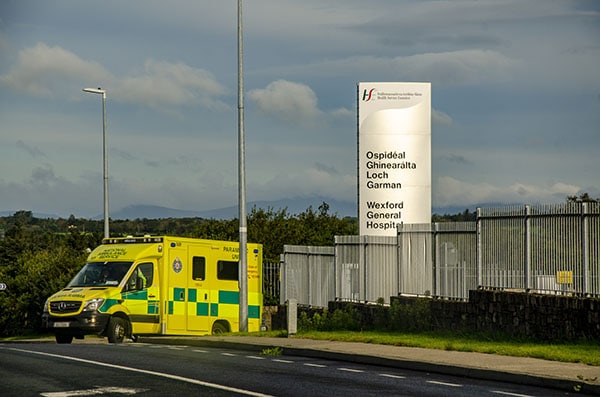Urgent action is being called for to address the shortage of advanced paramedics in the Wicklow-Wexford area
It has emerged that most recently an ambulance was delayed for nearly nine hours due to staffing issues.
Many paramedics are leaving the service due to a lack of career progression.
That’s according to North Wexford/South Wicklow TD Fionntan Ó Súilleabháin
The TD has criticized the removal of the Advanced Paramedic Programme, which had provided essential clinical training, and warned that this is putting lives at risk.
He is urging for immediate steps to resolve these staffing and resource shortages in the National Ambulance Service.
“The scarcity of advanced paramedic cover in the Wicklow-Wexford constituency needs to be addressed as a matter of urgency”
“On Saturday night/Sunday morning 11/01/2025, an emergency ambulance was dispatched from Loughlinstown Ambulance Station on Seaview Road in Shankill at 02.09am to an address in Gorey 72km away for an incident which was referred to the National Ambulance Service by Care Doc (a GP over the phone service) but had been triaged in NAS’s National Emergency Operations Centre (NEOC) at 17.09 the previous day!
Whilst it is shambolic that any member of the public should have to wait almost 9 hours (in total eight hours and fifty-seven minutes) for an ambulance to even be dispatched, it is equally as shocking that this emergency ambulance with two highly trained members of staff on board, one an advanced paramedic, was unavailable to service their own area for a period of nearly three hours.
Many within the service believe the delay is most certainly down to staffing issues which will continue to be an issue, as many paramedics are actively looking for other lines of employment outside of the NAS due to the simple fact that there is no longer any progression within the role of Paramedic.
The NAS Director was in front of the Leinster House Public Accounts Committee last year and was questioned at length regarding the current capacity of the NAS and the future projections for meeting the demand and alternative care pathways that the NAS can engage to treat patients in their own homes, thus, easing the pressure on our ED’s.
These projects, however great they may sound are at the present time understaffed and under resourced and have been placed at the forefront of the NAS training programme at the expense of the Advanced Paramedic Programme.
This programme was the only one that offered clinical progression for Paramedics within the NAS and which just about brings Paramedics in this country up to international standard.
This progression has now been removed from staff, decreasing the level of Advanced Paramedics on ambulances across the state.
Lives are being put at risk. This needs to be addressed as a matter of urgency.”

